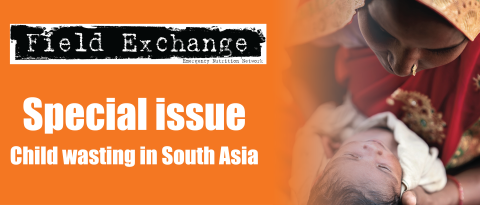Development of complementary foods for moderately wasted children to improve gut microbiota status
Research snapshot1
Children with acute malnutrition have impaired development of gut microbiota, which can affect future growth and health. Current therapeutic foods used to treat acute malnutrition have not been formulated to improve impaired gut microbiomes. A recent comprehensive study integrated findings from pre-clinical animal models with small-scale human pilot studies to understand which microbial targets are associated with better growth and which ingredients in complementary foods could increase the representation and expressed beneficial functions of these growth-promoting microbes.
The use of serially collected plasma and faecal samples from severely wasted children in Bangladesh as they recovered, combined with anthropometric data and data from healthy children, allowed for identification of growth-promoting bacterial taxa. Animal models were then used to recreate healthy and impaired gut environments and study their response to various food ingredients, leading to the creation of microbiota-directed complementary food (MDCF) prototypes. Sixty-three children aged 12 to 18 months with moderate wasting were then recruited into a randomised, double-blind study of standard treatment versus four promising MDCF prototypes. Analysis of plasma and faecal samples from these children identified which of the MDCFs was most effective at increasing presence of proteins associated with growth, bone formation, neuro-development and immune function, and improving gut microbiota to better resemble healthy children.
This promising start now requires the further investigation of this MDCF in larger studies and across different populations in order to assess its effectiveness in repairing gut microbiota in malnourished children and improving their subsequent growth and health. Innovations in this area have the potential to reduce relapse rates and minimise the long-term implications of acute malnutrition.
1 Gehrig JL, Venkatesh S, Chang HW, et al. Effects of microbiota-directed foods in gnotobiotic animals and undernourished children. Science. 2019;365(6449): eaau4732. doi:10.1126/science.aau4732


